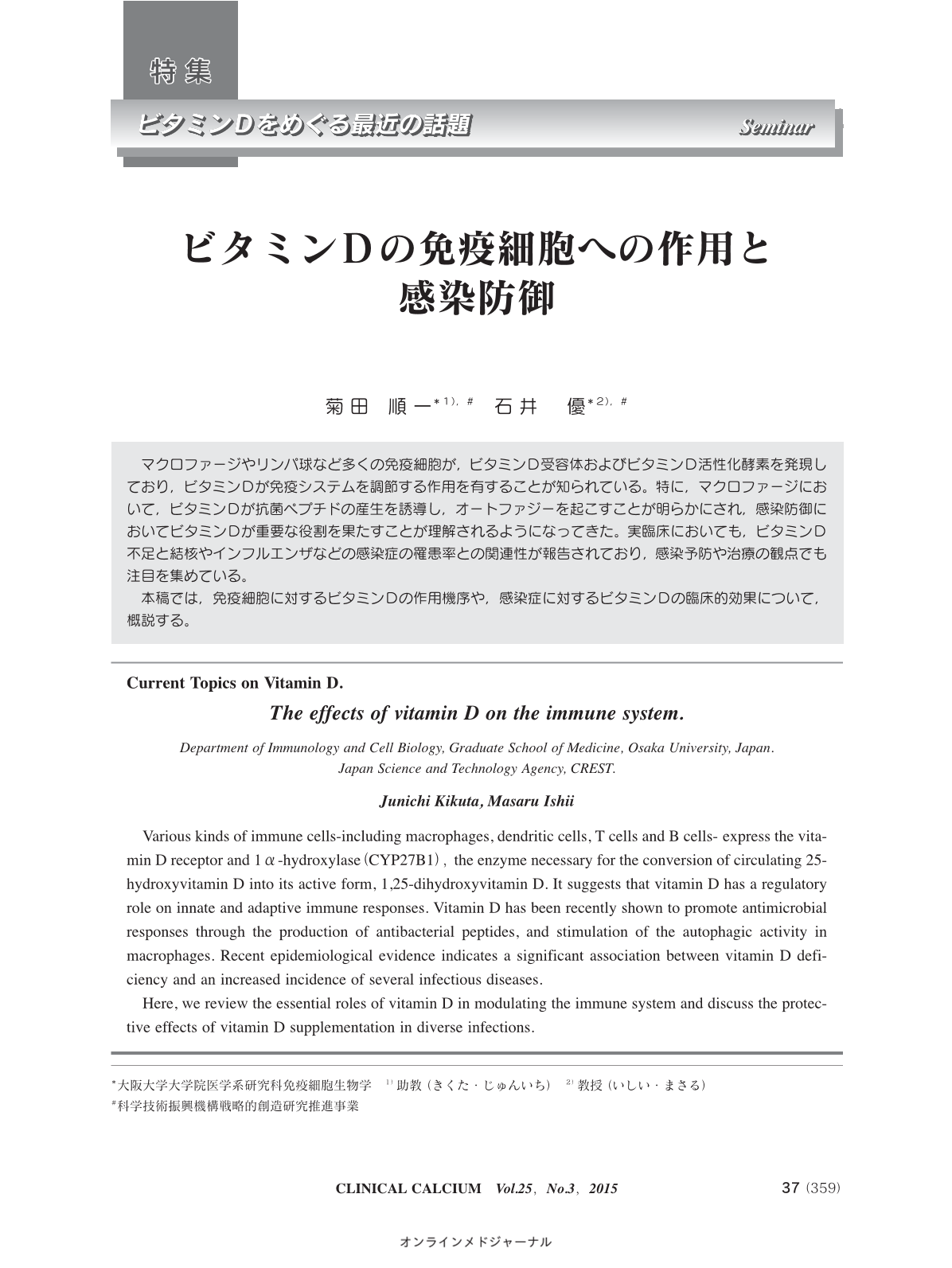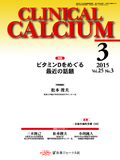Japanese
English
- 有料閲覧
- Abstract 文献概要
- 1ページ目 Look Inside
- 参考文献 Reference
マクロファージやリンパ球など多くの免疫細胞が,ビタミンD受容体およびビタミンD活性化酵素を発現しており,ビタミンDが免疫システムを調節する作用を有することが知られている。特に,マクロファージにおいて,ビタミンDが抗菌ペプチドの産生を誘導し,オートファジーを起こすことが明らかにされ,感染防御においてビタミンDが重要な役割を果たすことが理解されるようになってきた。実臨床においても,ビタミンD不足と結核やインフルエンザなどの感染症の罹患率との関連性が報告されており,感染予防や治療の観点でも注目を集めている。 本稿では,免疫細胞に対するビタミンDの作用機序や,感染症に対するビタミンDの臨床的効果について,概説する。
Various kinds of immune cells-including macrophages, dendritic cells, T cells and B cells- express the vitamin D receptor and 1α-hydroxylase(CYP27B1),the enzyme necessary for the conversion of circulating 25-hydroxyvitamin D into its active form, 1,25-dihydroxyvitamin D. It suggests that vitamin D has a regulatory role on innate and adaptive immune responses. Vitamin D has been recently shown to promote antimicrobial responses through the production of antibacterial peptides, and stimulation of the autophagic activity in macrophages. Recent epidemiological evidence indicates a significant association between vitamin D deficiency and an increased incidence of several infectious diseases. Here, we review the essential roles of vitamin D in modulating the immune system and discuss the protective effects of vitamin D supplementation in diverse infections.



